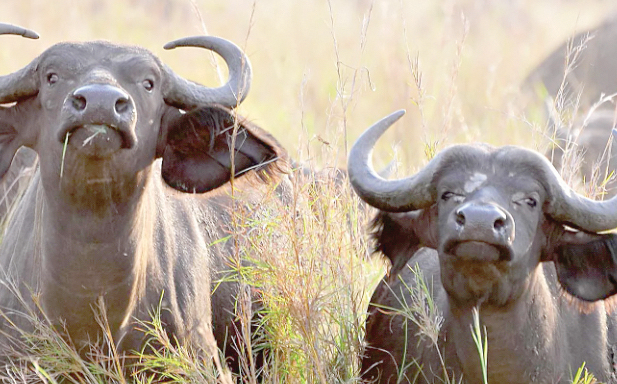Conservationists question directive on water buffalo meat

Conservationists have criticised the latest legislation of domesticated water buffaloes as food animals.
Justus Nyamu director of Ivory Belongs to Elephant, says the move has been made based on the fundamental misclassification of animal species and a potential misunderstanding of Kenya’s ecological and conservation realities.
“Kenya does not have domesticated water buffaloes as they are native to India, China and South East Asia,” Nyamu said. “
The buffalo species found in Kenya is the African or Cape buffalo, which is a wild species classified as “Near Threatened” under the IUCN Red List. Unlike domesticated water buffaloes, the Cape One plays a critical ecological role in the wild and is protected under the Kenya conservation laws.”
The concerns follow a gazette notice dated January 31, this year, in which Cabinet Secretary for Agriculture and Livestock Development Mutahi Kagwe declared domesticated water buffalo a food animal under Kenya’s Meat Control Act.
Nyamu explains that the act raises a serious concern regarding bush meat and illegal hunting in the country.
“This lack of a clear distinction between the two species of buffaloes could create loopholes that might escalate the poaching of the cape buffaloes further threatening the population in national parks and community conservancies.
“The KWS has stringent policies and regulations against illegal wildlife exploitation and any move that could inadvertently fuel bushmeat trade must be carefully examined,” he added.
Dr Paula Kahumbu, Chief Executive Officer of Wildlife Direct notes that this move could lead to increased poaching of wild buffalo species, such as the Cape buffalo, which are primarily found in protected areas like game parks and reserves.
“It’s essential to implement measures to prevent illegal hunting and ensure that only domesticated water buffaloes are utilised for meat production,” noted Kahumbu.
Nyamu adds that if the act intends to introduce domesticated water buffaloes into the country then the government should understand that the species is not wired to live in African eco-climate conditions.
“Unlike Asia where the water buffaloes thrive in wet, tropical and floodplain environment, Kenya’s varied ecological zones may not support their survival or productivity. Previous cases of exotic species introduction have shown the risk of ecological imbalance, competition with native species and unintended environ[1]mental consequences,” he noted.
In addition, the water buffalo species are known to be carriers of zoonotic diseases like anthrax, bovine tuberculosis, foot and mouth disease and introducing the species without proper mitigation strategies could pose a threat to Kenya’s livestock sector and public health.
“Strict veterinary protocols would be required, but even then, the risks could outweigh the benefits. Kenya’s conservation is guided by scientific evidence, eco-logical sustainability and long-term benefits to both people and wildlife,” noted Nyamu












